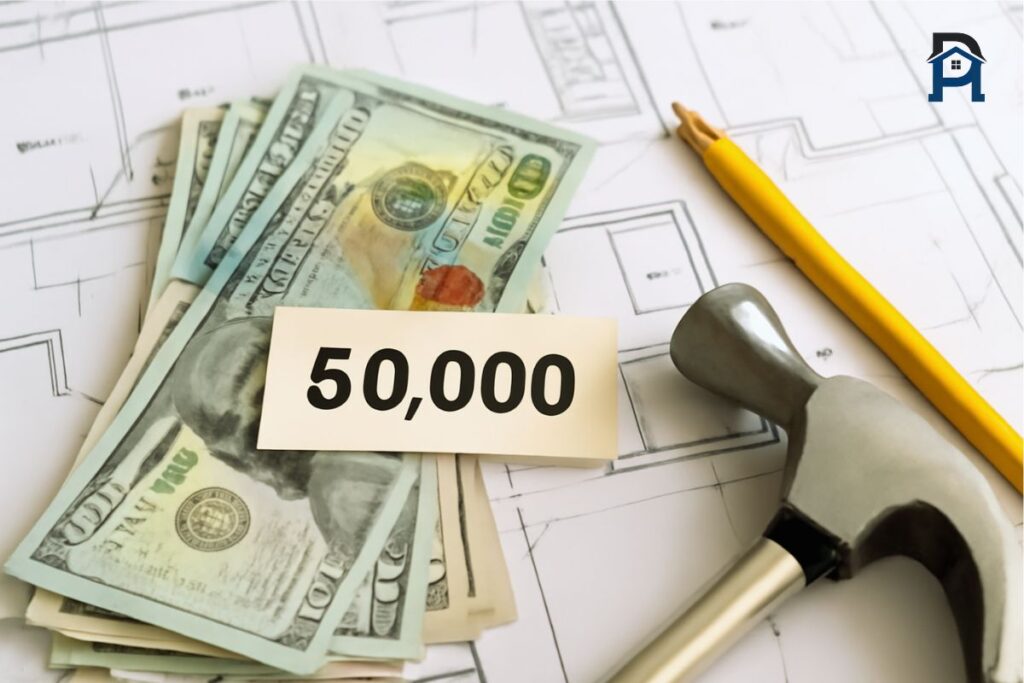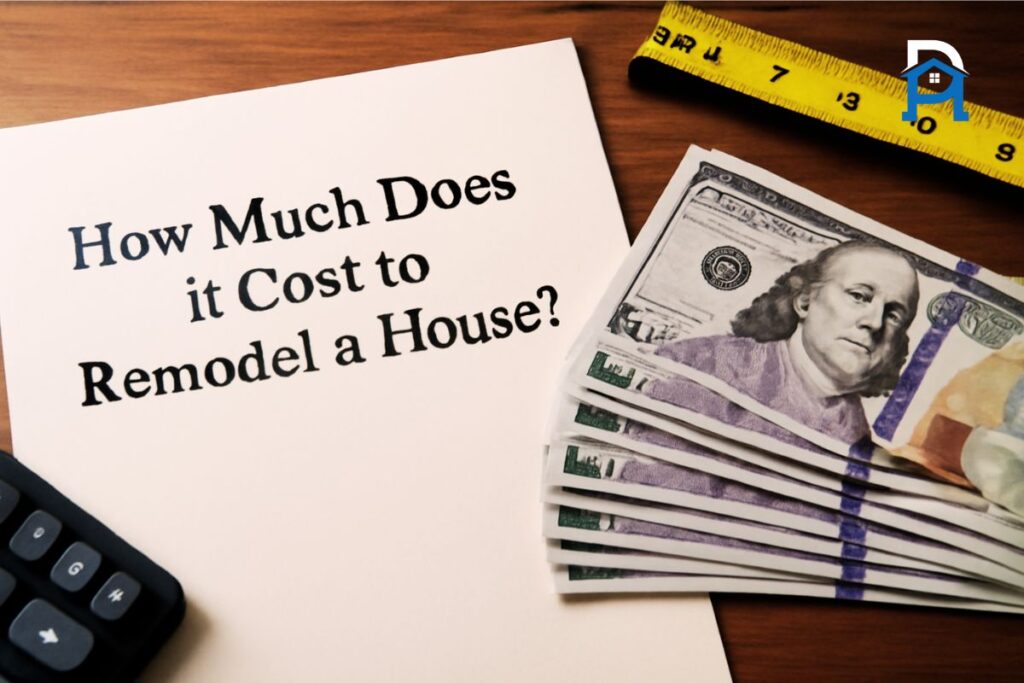When I first bought my home, I was full of ideas fresh paint, updated lighting, maybe even a total kitchen overhaul. But before diving into any major renovations, I had a big question: Are remodeling costs tax deductible?
The truth is, most improvements aren’t immediately deductible on your federal return. That surprised me too. You can’t just start renovating, save your receipts, and expect Uncle Sam to give you a break come April. But here’s the good news: some upgrades do come with tax benefits, especially if they’re energy-efficient or boost the value of your home over time.
For example, installing solar panels or upgrading to energy-saving windows might make you eligible for a tax credit, which is even better than a deduction, because it reduces your actual tax bill dollar-for-dollar. These federal deductions aren’t automatic, though. You need to follow the rules, keep documentation, and understand what qualifies.
The key takeaway? While you might not get immediate savings from general remodeling, knowing the potential for future tax perks—especially through energy-efficient renovations can help you make smarter decisions about where and how you invest in your home.
New Tax Law Changes
With all the recent tax law changes, many homeowners are asking whether remodeling costs are now deductible. While the Tax Cuts and Jobs Act and updates under the Inflation Reduction Act haven’t made general renovations fully deductible, they’ve expanded energy credits great news if you’re making eco-friendly upgrades.
Plus, changes to SALT caps affect how much state, local, sales, and property tax you can deduct, which impacts your total tax bill. Broader shifts in Medicaid, student loans, and Pell Grants may not relate directly to remodeling, but they can shape how much room you have in your budget. If you’re a homeowner or a worker earning tips or overtime, it’s worth understanding how these tax cuts and bill updates play into your financial plan.
Key Tax-Smart Takeaways for Home Remodelers
If you’re wondering are remodeling costs tax deductible, the answer isn’t always straightforward but with the right strategy, your home improvements can still bring solid tax perks. Here are four key insights I’ve shared with clients over the years:
- Home renovations usually don’t qualify for federal tax deductions outright, but some improvements may enhance your home’s value and reduce taxes when you sell, especially if you keep thorough documentation.
- If you’re using financing through a mortgage, you might qualify for a mortgage interest deduction—this has helped many homeowners soften the blow of remodeling costs when timed with a purchase or refinance.
- Some upgrades, like installing solar panels or other energy-generating systems, come with a federal tax credit that directly cuts your tax bill. Just make sure to track the installation cost accurately—it’s key to claiming the right credits.
- Don’t overlook medically necessary changes. If a remodel includes accessibility features for health needs, they may count as medical expenses and become eligible deductions, especially if they don’t add to your home’s value.
Can You Write Off Remodeling Costs on Your Taxes?
Many homeowners assume that remodeling their home means an automatic tax break, but it’s not always that simple. While remodeling is often a great investment in your property, the actual tax benefits depend on the type of home improvements you’re making.
Most general upgrades aren’t tax deductible in the year they’re done. However, some upgrades like energy-efficient improvements may qualify for tax credits, reducing what you owe rather than your taxable income.
More importantly, certain improvements can help lower your tax liability when you eventually sell your home, by increasing your cost basis and reducing taxable gains.
Unlocking the True Value of Remodeling Tax Benefits
Many people assume any remodeling project is a write-off, but that’s rarely the case. If an expense qualifies as a capital improvement, it’s not deductible the year you spend the money.
However, it can lower your capital gains taxes when you sell your home by increasing its cost basis. Think of upgrades that add long-term value rather than just fixing something broken. These might not give you immediate savings but could offer serious tax benefits down the line.
Understanding Tax Deductions vs. Tax Credits
Here’s where things get interesting: tax deductions lower your taxable income, while tax credits directly reduce your tax bill. If you’re investing in home improvements like solar panels or energy-efficient windows, those might qualify for tax credits that reduce the taxes owed dollar for dollar.
On the other hand, things like remodeling costs related to capital improvements are generally only deductible later when the home is sold. Knowing the difference can help you plan for immediate tax benefits versus future savings.
Tax Deduction vs. Tax Credit: Know the Impact
If you’re confused between a tax deduction and a tax credit, you’re not alone. From my own experience working with families on major renovations, many don’t realize how different the savings can be.
The IRS treats these tools differently: a tax deduction lowers your adjusted gross income, while a credit gives you a direct reduce in what you owe. For example, installing solar could save you thousands dollar for dollar through a credit, while writing off interest on a remodel loan simply lowers your income base.
Why Capital Improvements Matter More Than You Think
Although you may not see it now, qualifying remodeling costs as capital improvements can offer long-term value. These aren’t just deductible projects, they affect how much capital gains tax you’ll pay when you sell your house.
Upgrading your kitchen or replacing the roof? These likely qualify and can significantly reduce what the IRS says you “earned” on the sale. Smart upgrades now could mean big savings later.
What Really Counts as a Capital Improvement?
To qualify, think big: room additions, structural expansions, kitchen upgrades, or a new HVAC or plumbing system. Even bathroom upgrades often qualify if they extend the home’s life or add value.
The IRS allows married couples to exclude up to $500,000 in profit from capital gains tax as long as you’ve lived there for two of the last five years. Keeping detailed records helps establish a clear cost basis, reducing your taxable gain when it’s time to move on.
Which Remodeling Costs Are Tax Deductible?
Energy-Efficient Upgrades That Cut Your Tax Bill
When my neighbor installed solar panels and high-grade insulation, he was surprised to learn these energy-efficient home improvements could offer real savings. Thanks to updated tax laws, you can claim a credit not just a deduction worth up to $1,200 per year for eligible improvements like leaky doors, windows, and even a home energy audit.
The allowable credit amount includes caps such as $250 per door, $600 for windows, and $150 for audits. More specialized items like heat pumps, biomass stoves, or biomass boilers can net up to $2,000 annually.
All of this runs through 2032, and if you’re planning long-term upgrades, you can use these tax credits to reduce your tax bills almost dollar for dollar—without hitting a lifetime limit. Just be sure your installations are qualifying, properly installed, and that you keep records of every expense.
Medical Improvements That May Be Deductible
If you’re making home improvements that are medically necessary, such as installing special equipment or widening doorways for a dependent or spouse, those expenses could be deductible.
I once helped a client add a stair lift for her aging father, and while it didn’t increase the home’s value, it was classified as a capital improvement eligible under medical care.
As long as the cost doesn’t add measurable value and it’s recommended by a doctor, the IRS may allow it to be included in your adjusted gross income calculations for medical expenses. Always confirm eligibility before assuming these improvements will qualify.
Home Office Upgrades You Might Overlook
For homeowners and renters using part of their house for business, your home office can bring tax deductions if done right. Your principal place of business must be used exclusively for that purpose, and upgrades to that office space must meet strict criteria.
A few years ago, I helped a client replace a broken window in his office and repaint the room. While the total expense was $5,000, only 10% or $500 was deducted because that was the portion of the entire home used for business purposes.
Be sure to divide repairs, repainting, and any structural work by the right percentage of use to ensure your deduction is accurate and defensible.
Rental Property Renovations and What Qualifies
If you’re managing residential properties or investing in rental properties, certain improvements may be eligible for tax benefits—but the IRS draws hard lines.
Only capital improvements, energy-efficient upgrades, or medical alterations typically qualify, and even then, there are complex rules about depreciation and timing. I once worked with a landlord who upgraded lighting and insulation across several units.
Because these were capital improvements, they were not only depreciable but also added long-term value, helping him manage tax obligations more strategically.
What Remodeling Costs Are NOT Deductible?
When clients ask me are remodeling costs tax deductible, I always say—some are, but many are not. It’s important to understand that not all home improvements offer tax advantages, especially when it comes to personal taste or style choices.
Things like cosmetic upgrades—think painting, wallpapering, or design tweaks—typically don’t qualify for deductions. I’ve seen homeowners invest heavily in luxury additions like home theaters or wine cellars, assuming these would count as write-offs.
Unfortunately, unless they’re part of a larger capital improvement project that adds real structural value, the IRS considers them non-deductible. Even repairs and routine maintenance, like fixing a leak or replacing broken tiles, don’t make the cut for tax relief either. If you’re planning a remodel with hopes of a deduction, knowing these limits can save you a lot of disappointment—and money.
How to Maximize Your Tax Savings
Tips For Proper Documentation
One of the most overlooked parts of answering are remodeling costs tax deductible is what happens after the project ends—specifically, how well you track your expenses.
I always advise homeowners to follow the IRS’s recommendation and use a worksheet to log every dollar spent on home improvements, renovations, or even cosmetic upgrades. Keeping thorough receipts, canceled checks, money order records, contracts, and any other documents related to the project is key.
Store them for at least three years from the date of filing, or two years from when taxes were paid, whichever is longer. I’ve seen clients lose out on tax deductible opportunities simply because they tossed a receipt.
If you’re making updates to personalize your home or boost property value, treat it like an investment. Have a clear plan, stick to the project timeline, and document everything. A solid guide for tracking your spending will help you pay smarter, not just more. Proper paperwork today can make all the difference when you’re sorting out deductions later.
Using Your Mortgage To Make Home Improvements
Many homeowners don’t realize that the way you finance your remodel can make a difference. If your mortgage includes funds for home improvements at the time the house is purchased, that extra amount becomes part of your acquisition cost and the interest on it may qualify for a mortgage interest deduction if you’re itemizing your deductions.
I’ve helped clients use a cash-out refinance, a second mortgage, or a home equity line of credit to pull out money and improve their home—while claiming home mortgage interest as a legitimate deduction. The key is ensuring the funds are strictly used for renovation or qualified improvements, not unrelated expenses.
Maximizing Your Tax Benefits
- Keep receipts and contractor invoices for all home improvements
- Work with a tax professional to confirm eligibility for credits or deductions
- Separate regular repairs from capital improvements when tracking expenses
- If you’re selling your home, strategic improvements can help reduce capital gains tax
Additional Tax Tips for Homeowners
Other Tax Breaks For Homeowners
When clients ask me, “Are remodeling costs tax deductible?”, I always remind them that while many upgrades don’t qualify directly, there are still other valuable tax breaks worth exploring.
For example, certain tax-deductible expenses tied to home improvement expense like medical modifications or energy-saving features—might not be obvious at first but can lead to meaningful tax credits or a helpful tax deduction when properly claimed on your tax return.
If you’re earning rental property income, capital improvements to that space may be depreciated over time, potentially reducing your capital gains liability down the road. Always double-check IRS guidelines before filing, especially since not all deductions apply the same way for personal and investment properties.
Home Sale Exemption
The home sale exemption can be a major win for qualified sellers. I recently worked with a couple who had lived in their primary residence for five years, and their home renovations which weren’t deductible initially helped increase their basis, reducing the taxable portion of their sales price.
When they sold, they excluded up to $500,000 in profit because they were filing married joint, while a single filer can exclude up to $250,000. Renovations that improve the value of your home not only boost appreciation, but they also help reduce capital gains tax later if your sale price climbs.
Looking To Spruce Up Your Home Without Breaking The Bank?
If you’re planning a renovation on a budget, there are still smart ways to manage your expense. Focus on home renovations that might offer tax credits or tax deductions in the long run.
Not every improvement is deducted on your federal taxes, but they could minimize future taxes when you purchase, sell, or refinance your home. Even small, strategic improvements today can lead to meaningful savings tomorrow.
Conclusion
After working on countless home improvement projects, I’ve learned that whether a remodel is tax deductible often depends on the nature of the improvements and how well you handle your documentation.
Certain modifications for medical needs, or upgrades focused on energy efficiency, may qualify for tax credits or deductions but only in specific situations. That’s why I always recommend speaking with a tax professional before assuming any deduction or credit will apply. It’s all about matching the right upgrade to the right rule.
In short, while many remodeling expenses won’t lead to instant write-offs, well-planned projects like energy-efficient upgrades, home office renovations, or medical modifications can lead to immediate tax benefits. And when done smartly, these improvements may also reduce your capital gains taxes later when selling your home.
Whether you’re investing in your forever house or preparing to remodel for resale, understanding the tax landscape helps you build with both purpose and peace of mind.

I’m Bilal, the founder of Dwellify Home. With 6 years of practical experience in home remodeling, interior design, and décor consulting, I help people transform their spaces with simple, effective, and affordable ideas. I specialize in offering real-world tips, step-by-step guides, and product recommendations that make home improvement easier and more enjoyable. My mission is to empower homeowners and renters to create functional, beautiful spaces—one thoughtful update at a time.




